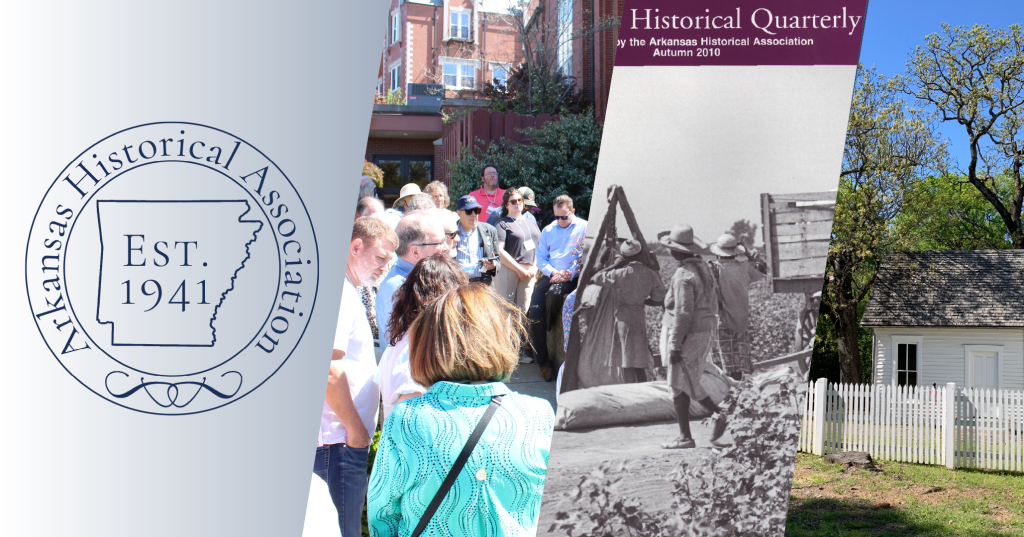
About Us
Officers
-
Rachel Silva Patton, North Little Rock, President
-
J. Blake Perkins, Lynn, Vice President
-
Patrick G. Williams, Fayetteville, Secretary-Treasurer
Board of Trustees
-
Kwami Abdul-Bey, North Little Rock (2026)
-
John Beller, Cave City (2026)
-
Carla Coleman, Little Rock (2026)
-
Rodney Harris, Pocahontas (2027)
-
Brian Irby, North Little Rock (2026)
-
Brian K. Mitchell, Springfield, IL (2026)
-
Tim Nutt, Little Rock (2027)
-
Ruth O’Loughlin, Lake Village (2028)
-
Sonny Rhodes, North Little Rock (2028)
-
Matthew Rooney, Monticello (2026)
-
Donna Shelton, Jonesboro (2028)
-
Lisa Speer, Arkadelphia (2027)
-
W. Scott Tomlin, Hector (2026)
-
Ralph Wilcox, Little Rock (2028)
-
Tom Wing, Van Buren (2028)
-
Blake Wintory, Conway (2026)
-
Joshua Youngblood, Fayetteville (2027)
Short History of Arkansas Historical Association
On February 22, 1941, 100 people, including some of Arkansas’s most prominent citizens and leading scholars, assembled at the Hotel Marion in Little Rock to establish the Arkansas Historical Association, intended to
“promote interest in the history of Arkansas, to locate, collect, and preserve historical material, and to publish scarce and important source material, and also historical articles, news, and notes.”
Since then, the AHA has pursued that mission chiefly through its annual conferences and publication of the Arkansas Historical Quarterly. Our conferences, held every year since 1946, allow people from all walks of life to engage in freewheeling exchanges of information and ideas, and also honor the best in teaching, research, and local study of Arkansas state history. The Arkansas Historical Quarterly, published since 1942, has established itself as the primary venue for scholarly study of every aspect of Arkansas life from earliest human settlement to the present day. Over the years, the Quarterly has had six editors before the present one: David Y. Thomas (1942), Fred Harvey Harrington (1943-44), Dorsey Jones (1944-53), Ted Worley (1953-59), Walter L. Brown (1959-90), and Jeannie M. Whayne (1990-2005). The association’s presidents are elected biennially and are eligible to serve two terms.
In addition to promoting greater understanding of Arkansas, the AHA has shaped the study of American history more broadly, being, for example, one of the first southern state historical groups to sponsor scholarship on the civil rights movement and contributing much to our knowledge of the Civil War in the Trans-Mississippi.
For most of the AHA’s life, its business offices and its journal have been housed at the University of Arkansas, Fayetteville, and its operations supported by the J. William Fulbright College of Arts and Science. But the association could not survive without the contributions of members across the state and nation, the work of other colleges and universities, libraries, museums, and local historical societies, and the aid of the Division of Arkansas Heritage, and the Arkansas Humanities Council.
Address
Arkansas Historical Association
416 N. Campus Drive, MAIN 416
University of Arkansas
Fayetteville, AR 72701
Contact Info
479-575-5884
Email: renwickh@uark.edu


